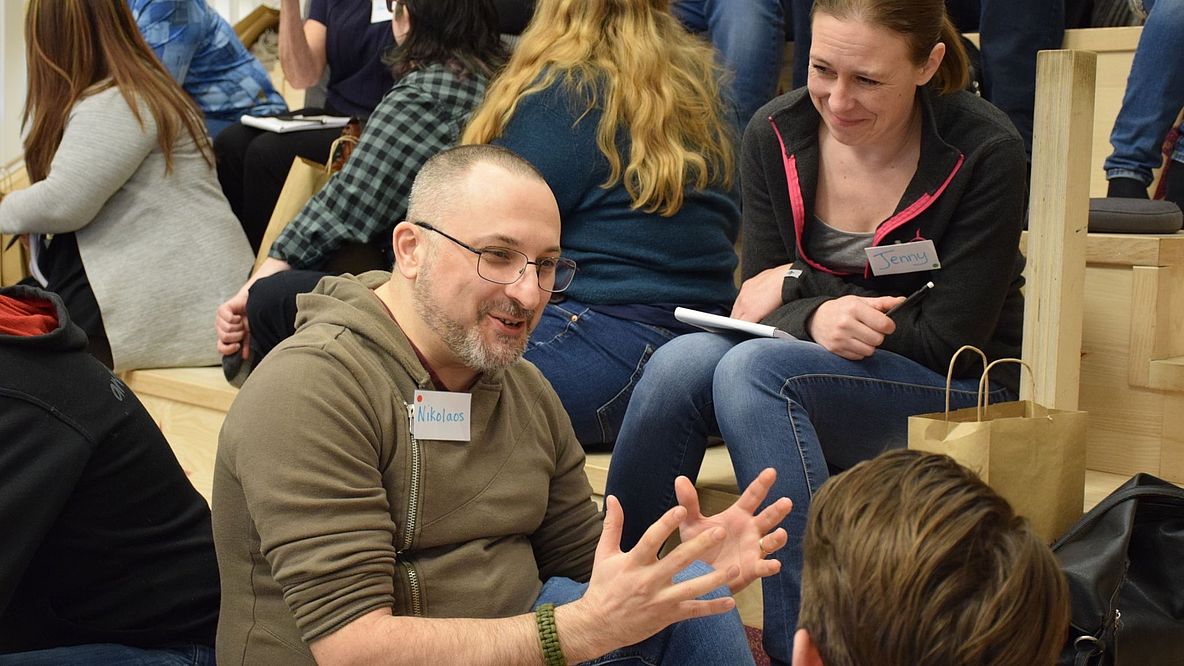Citizens' assembly on nutrition: "It was worth it!"

More knowledge about sustainable food in schools, more rules for marketing unhealthy food and lower VAT on fruit and vegetables. These are some of the recommendations of the Swedish Citizens' Assembly on Nutrition.
In the spring of 2023, more than 60 people from all over Sweden had come up with proposals on how to simplify sustainable food in order to protect health and the environment. After four meetings, the assembly had come up with 40 proposals that were submitted to the Swedish Food Administration. The Citizens' Assembly also decided which proposals they thought were the most important. Among the most popular proposals were
- Extending home economics lessons to all grades and reformulating the subject to include sustainability, the environment, practical cultivation, health, production and cooking with practical elements.
- Use economic incentives, such as reduced VAT rates on staple foods and fruits and vegetables, to encourage consumption of sustainable food and locally produced ingredients. Increased VAT rates on highly processed and unhealthy foods can be considered.
- Banning retail shops from throwing away edible food without first offering it at a reduced price.
Participants in the Citizens' Assembly had learned about the impact of food on health and the environment, met with experts and discussed ideas and suggestions on how to make it easier to eat sustainably for the sake of health and the environment.
"Smart and exciting proposals"
"It was very interesting to follow the work of the panel and see what they came up with. The commitment to food, health and the environment was great. And it is impressive to see what clever and exciting proposals have come out of it," says Annica Sohlström, Director General of the Swedish Food Administration, who received the proposals from the Citizens' Assembly during the final meeting on 10 June 2023.
"A fantastic group and a lot of discussions - it was great. I think it's especially important to raise public awareness. Now I hope that some of the things we proposed will become reality!" said newly retired participant Conny from Uddevalla
"It was very worthwhile to be there! I learned a lot, especially about how we are influenced by advertising, which my group dealt with. In the beginning I had the attitude that I wanted to convey what I felt was important for me. But new doors have opened, which surprised me!" said Johanna from Luleå, who works with digitalisation and is a fitness trainer.
Implementing a government mandate
The ideas of the Citizens' Assembly will be one of the bases for implementing a government mandate that the Swedish National Food Administration and the Swedish National Board of Health have had since 2021. The mandate for the authorities is to propose targets, indicators and action areas for sustainable and healthy food consumption.
The Citizens' Assembly consisted of more than 60 people over the age of 16. The assembly was composed in such a way that it represented the Swedish population as well as possible in terms of age, gender, region and level of education.
Invitation by SMS or letter
To recruit participants, 7,000 people were invited to take part by SMS or letter. They were then able to express their interest and answer a few questions on age, gender and level of education, among other things. 70 applicants were randomly selected for the Citizens' Assembly. The assembly met a total of four times, twice online and twice in Stockholm.
Each meeting lasted six hours. Participants received an honorarium totalling 999 Swedish kronor. In addition, travel and accommodation expenses were covered.
Review Council
To ensure the proper conduct of the Citizens' Assembly, a Review Council consisting of five persons was established. This council met several times during the process to provide advice and feedback.
Read more: Citizens' Assembly on Sustainable and Healthy Food Consumption